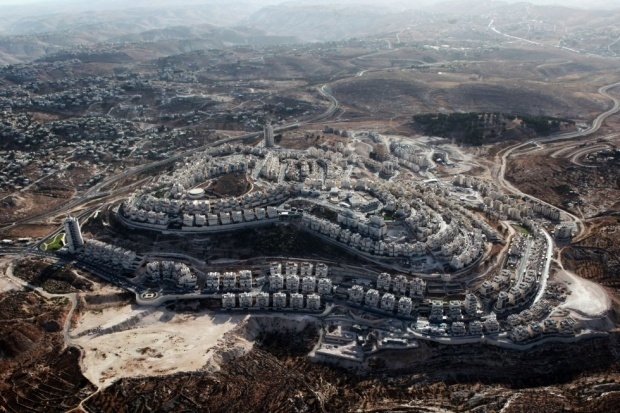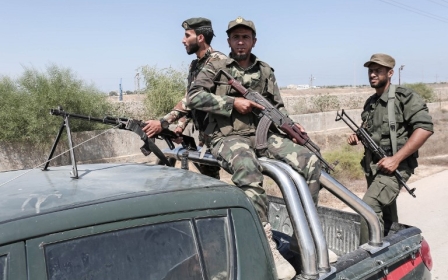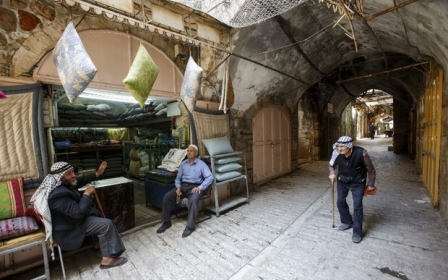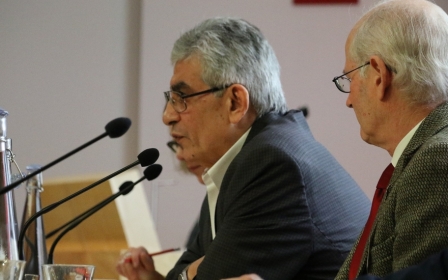Israel says no talks with Palestinian government until Hamas disarms
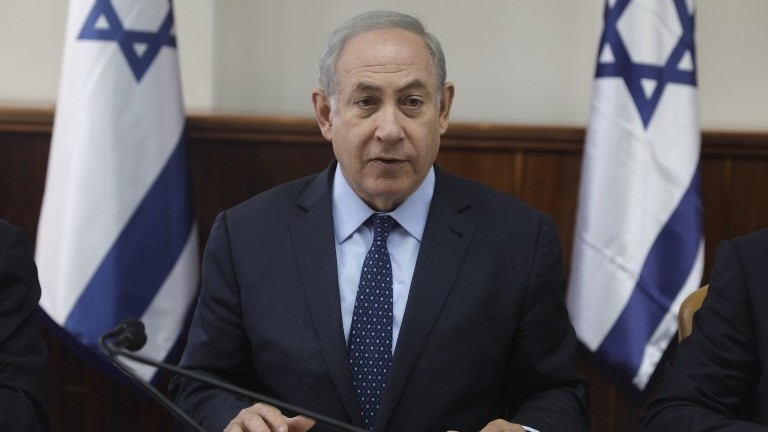
Israel has said that it will refuse to negotiate with the newly formed Palestinian unity government unless Hamas recognises Israel and gives up its weapons.
The announcement comes as Israel advanced plans on Tuesday to build more than 1,000 settler homes in a new push by Prime Minister Benjamin Netanyahu's government to expand settlements in the occupied West Bank, an NGO said.
In a Facebook status posted in Hebrew, Netanyahu said that his government would not negotiate with the Palestinian Authority unless Hamas returned the bodies of dead Israeli soldiers and severed ties with Iran.
He called on the PA to hand over full security control of its border crossings to Israel and for Hamas to stop any smuggling from taking place.
The unity government met for the first time this month after it agreed to end a decade-long split between the West Bank and Hamas-controlled Gaza Strip which has been besieged since 2007.
It was the first meeting of the cabinet in Gaza since November 2014, and came a day after Palestinian Prime Minister Rami Hamdallah entered the territory for the first time since a unity government collapsed in June 2015.
Approval of new settlements
The approvals for new settlements came after Israeli government officials pledged a major boost in settlement home approvals this year, with US President Donald Trump so far much less critical of such plans than his predecessor Barack Obama.
Settlement watchdog Peace Now reported the approvals by a committee overseeing settlement construction in the West Bank.
A list provided by the NGO showed homes to be offered in a number of locations across the territory, including 146 in Nokdim, a southern West Bank settlement near Bethlehem where Defence Minister Avigdor Lieberman lives.
Hagit Ofran of Peace Now said further approvals were likely on Wednesday, with more than 2,000 units expected to be on the agenda over the course of the two-day meeting.
Separately on Monday, an Israeli committee approved permits for 31 settler homes in Hebron, the first such green light for the flashpoint West Bank city since 2002.
Several hundred Israeli settlers live in the heart of Hebron under heavy military guard, among some 200,000 Palestinians.
The Hebron units are to be built on Shuhada Street, formerly an important market road leading to a holy site where the biblical Abraham is believed to have been buried.
The street is now largely closed off to Palestinians.
Settlement building in the West Bank and annexed East Jerusalem is considered illegal under international law.
It is also seen as a major obstacle to peace as the settlements are built on land the Palestinians see as part of their future state.
Two-state solution threatened
Netanyahu's right-wing coalition government leans heavily on settlers and their supporters to maintain its thin parliamentary majority.
Israeli officials say a total of around 12,000 housing units will be given various stages of approval this year, four times the amount in 2016.
More than 60 percent of the West Bank is under near complete Israeli control, the UN says, while a further portion of the territory is under Israeli security control.
The portion of the West Bank that is in theory under both Palestinian civilian and security control still sees raids by Israeli soldiers.
About 430,000 Israeli settlers live among 2.6 million Palestinians in the West Bank, occupied by Israel in the 1967 Six-Day War.
Trump is seeking to restart peace negotiations between Israel and the Palestinians, frozen since a US-led initiative collapsed in 2014.
Prominent members of Netanyahu's coalition openly oppose the idea of a Palestinian state and advocate annexing most of the West Bank.
Netanyahu recently said he plans no uprooting of settlements, blaming Palestinian "incitement" and attacks against Israelis, among other issues, for the lack of progress in peace efforts.
New MEE newsletter: Jerusalem Dispatch
Sign up to get the latest insights and analysis on Israel-Palestine, alongside Turkey Unpacked and other MEE newsletters
Middle East Eye delivers independent and unrivalled coverage and analysis of the Middle East, North Africa and beyond. To learn more about republishing this content and the associated fees, please fill out this form. More about MEE can be found here.


